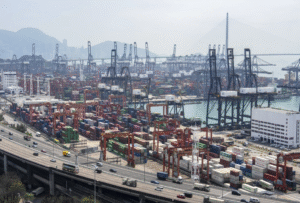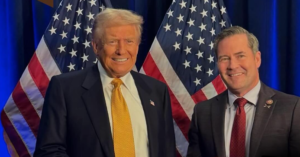China issued a strong warning on Monday to countries considering trade agreements with the United States that could negatively impact Chinese interests. This comes in response to a wave of trade negotiations initiated by countries such as Taiwan, Japan, and South Korea following President Donald Trump’s recent announcement of sweeping tariffs targeting nearly all U.S. trading partners on April 2.
Although the tariffs were temporarily lifted for most nations after financial markets reacted negatively, the U.S. moved ahead with significant tariff increases specifically targeting China.
In a statement from its Commerce Ministry, China declared its opposition to any deals that would compromise its position. “China firmly opposes any party reaching a deal at the expense of China’s interests,” the ministry said. “If this happens, China will never accept it and will resolutely take countermeasures in a reciprocal manner. China is determined and capable of safeguarding its own rights and interests.”
U.S. Treasury Secretary Scott Bessent recently urged allied nations to collaborate with Washington and approach trade negotiations with China collectively. However, China criticized this approach, accusing the U.S. of using economic pressure tactics.
Labeling the tariffs as a form of “economic bullying,” the Commerce Ministry condemned countries seeking exemptions through concessions. “Appeasement cannot bring peace, and compromise cannot win respect,” the statement read. “For one’s own temporary selfish interests, sacrificing the interests of others in exchange for so-called exemptions is like seeking the skin from a tiger. It will ultimately only fail on both ends and harm others without benefiting themselves.”
China emphasized its willingness to engage in dialogue with the U.S., but no formal meetings have been scheduled.
Trump has imposed some of the harshest trade measures against China, with total duties on Chinese imports reaching 145%. In retaliation, Beijing introduced its own set of tariffs on U.S. goods, amounting to 125%.
These escalating tariffs have disrupted trade flows, unsettled exporters, and posed a broader threat to the global economy.













